Ten new CIMMYT-developed maize varieties released in Pakistan
New maize varieties to bolster seed sector and enhance farm productivity
Advertisement
Pakistan’s maize sector achieved a remarkable milestone in 2019 by releasing ten new maize varieties developed by the International Maize and Wheat Improvement Center (CIMMYT) for commercial cultivation. The new varieties were released by two public sector research institutes.
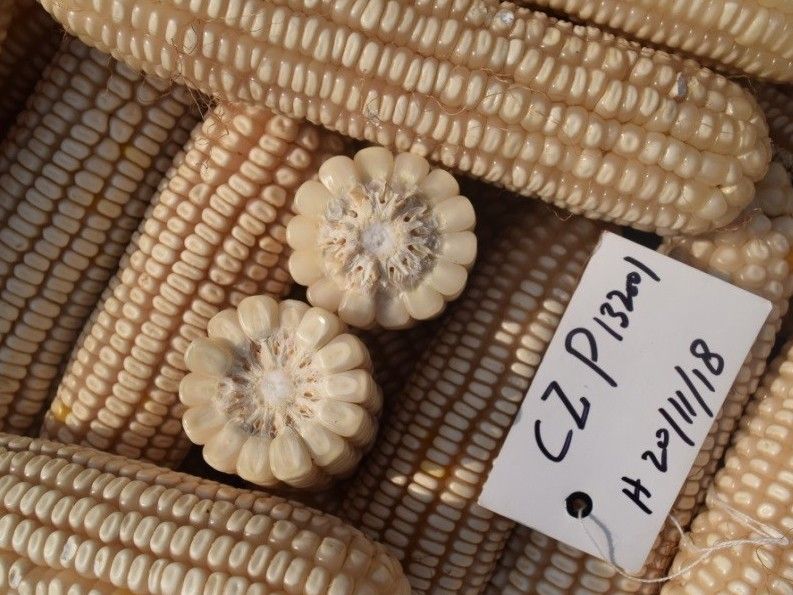
Early Maturing Short Duration High Yielding White Maize open-pollinated variety
MMRI
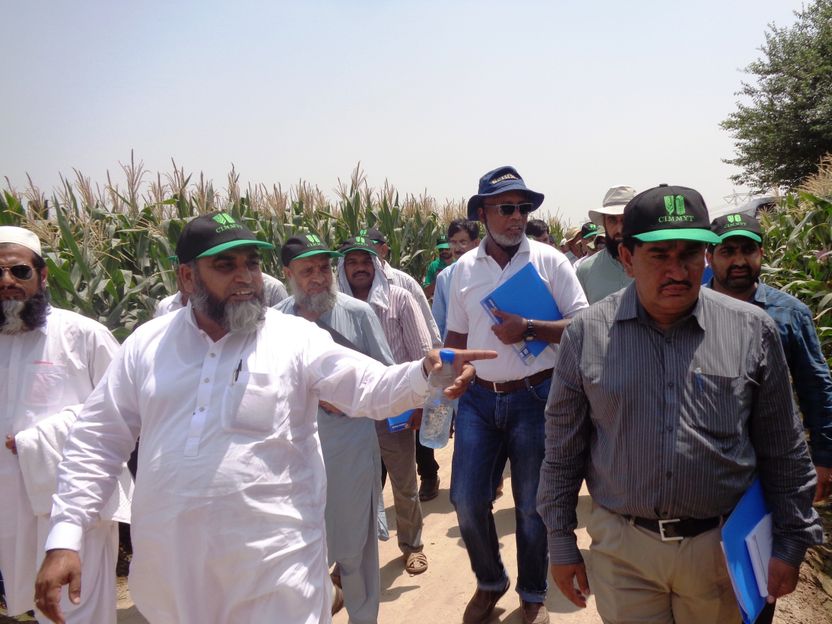
A group of maize experts visits maize research and seed production fields at the Maize and Millets Research Institute (MMRI) in Yousafwala, Pakistan
CIMMYT
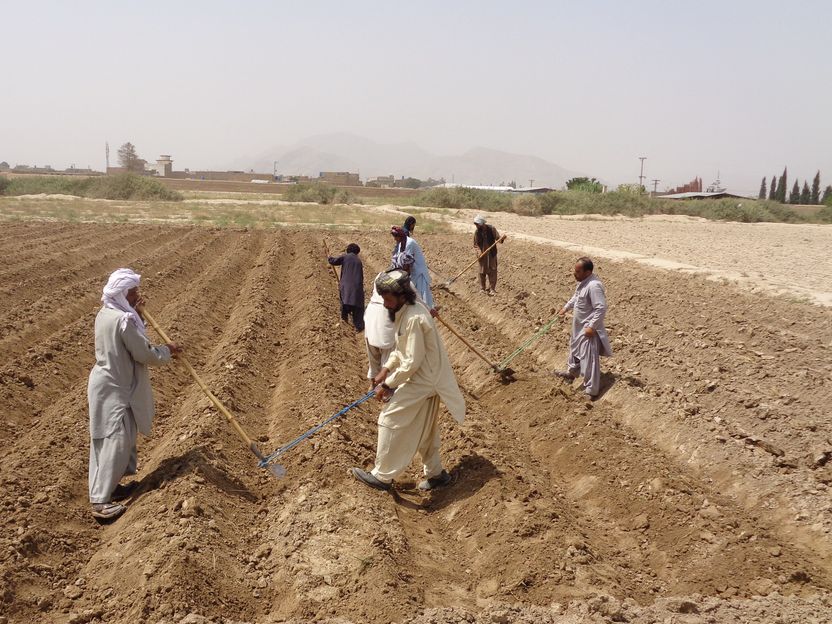
A maize field is prepared manually for planting in Balochistan province, Pakistan
CIMMYT
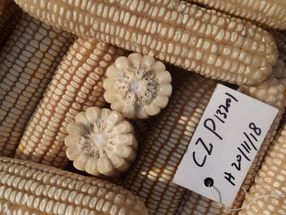
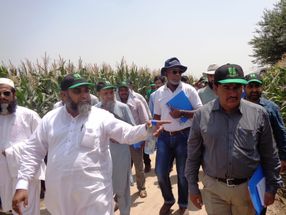
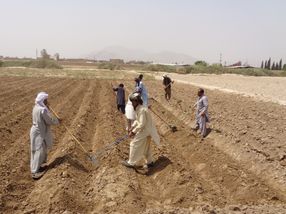
The Maize and Millets Research Institute (MMRI) in Yousafwala, one of the leading and the oldest maize research institutes in Pakistan, released four open-pollinated varieties (OPVs) sourced from CIMMYT. The varieties, named Gohar-19, CIMMYT-PAK, Sahiwal Gold, and Pop-1 are the newest additions to Pakistan’s maize variety list. All the varieties are short-duration, which means they can be harvested quickly to rotate land for the next crop. They can also be grown in the main and off season, which makes them suitable for many different cropping systems.
The Agricultural Research Institute (ARI) in Quetta received approval for six of CIMMYT’s white kernel OPVs from the Provincial Seed Council (PSC), a government body responsible for variety registration in Balochistan. The varieties are named MERAJ-2019, MAHZAIB-2019, NOOR-2019, PAGHUNDA-2019, SILVER-2019, and SAR-SUBZ-2019. They are early-maturing with high yielding potential & drought tolerance. Drought stress is a major challenge for farmers in the Balochistan province, which covers 45% of Pakistan’s territory.
Muhammad Arshad, Director of MMRI, acknowledged CIMMYT’s efforts to deploy the wide range of maize germplasm in the country. Arshad added that the Institute is working with partners to widely distribute these seeds to smallholder farmers at a reasonable price. “We are able to harvest maize yields from these early maturing varieties by applying 4-6 irrigations, unlike other varieties that require a minimum of ten irrigations per crop cycle,” said Syed Asmatullah Taran, Director of Cereal Crops at the Agricultural Research Institute in Quetta, Balochistan. “These are the first ever released maize varieties in our province,” he added, applauding CIMMYT for this milestone.
Muhammad Imtiaz, CIMMYT’s Country Representative for Pakistan and leader of the Agricultural Innovation Program (AIP), appreciated MMRI and ARI for their dedication and impactful efforts to strengthen the local maize seed system. Imtiaz explained that these new varieties will help cash-strapped smallholder farmers improve their livelihoods.
Through the AIP project, CIMMYT and its partners are helping new seeds reach farmers. “We expect to see more releases in 2020, as many varieties are in the pipeline,” said CIMMYT’s Seed Systems Specialist for South Asia, AbduRahman Beshir. “What is important is to scale up the seed production and distribution of these varieties so that farmers can get their share from the interventions. Water-efficient maize varieties will not only contribute to climate change adaptation strategy, but will also support the livelihood of marginal farmers.” Beshir also emphasized the importance of private sector engagement for seed delivery.
Maize is Pakistan’s third most important cereal following wheat and rice, encompassing an area of 1.3 million hectares. Maize productivity is also among the highest in South Asia, with national yields reaching almost 5 kilograms per hectare.
Despite its growing demand, maize production in Pakistan faces various challenges such as a lack of diverse genotypes suitable for various uses and ecologies, a weak seed delivery system unable to reach marginal farmers, high retail price of seeds and unpredictable weather conditions due to climate changes.
To enhance the availability, accessibility and affordability of quality maize seeds, the Agricultural Innovation Program (AIP) for Pakistan, led by CIMMYT and funded by USAID, is working with partners to benefit smallholder farmers across the country. The project focuses on the development and deployment of market-ready maize products sourced from different breeding hubs and systematically testing their adaptation in order to accelerate seed and varietal replacement in Pakistan. In the last six years, AIP’s public and private partners were able to access over 60 finished maize products and more than 150 parental lines from CIMMYT and IITA for further testing, variety registration, demonstration and seed scale-up.





























































